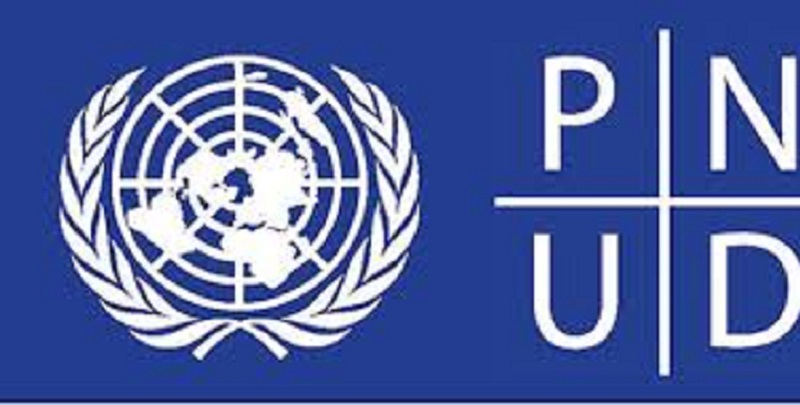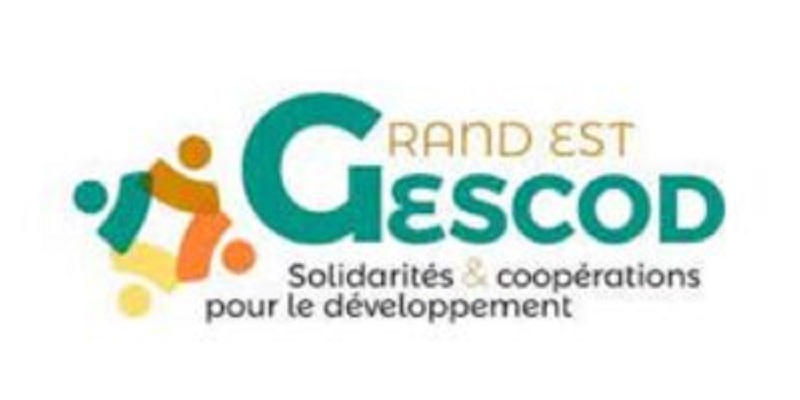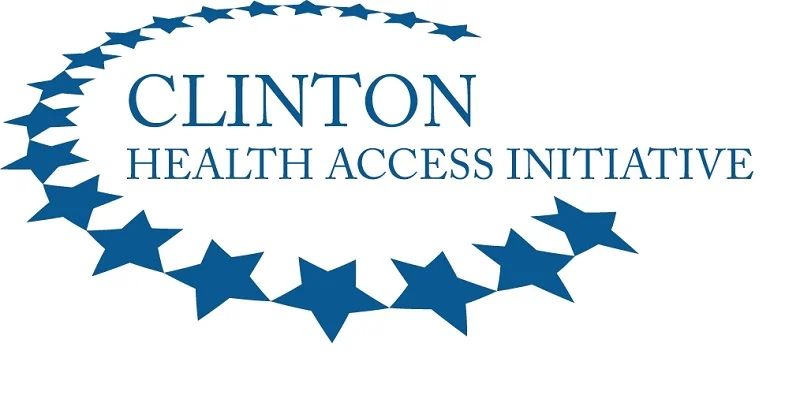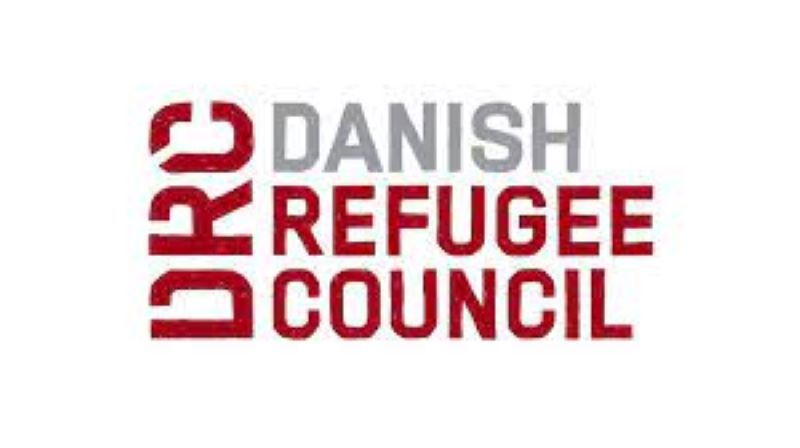Poste 1 : Programme Specialist – Climate and Security Risk – Liptako Gourma Authority
Le PNUD s’engage à assurer la diversité du personnel en termes de sexe, de nationalité et de culture. Les personnes issues de groupes minoritaires, de groupes autochtones et de personnes handicapées sont également encouragées à postuler. Toutes les candidatures seront traitées avec la plus stricte confidentialité.
Le PNUD ne tolère pas l’exploitation et l’abus sexuels, tout type de harcèlement, y compris le harcèlement sexuel, et la discrimination. Tous les candidats sélectionnés feront donc l’objet d’une vérification rigoureuse des références et des antécédents.
UNDP is the knowledge frontier organization for sustainable development in the UN Development System and serves as the integrator for collective action to realize the Sustainable Development Goals (SDGs). UNDP’s policy work carried out at HQ, Regional and Country Office levels, forms a contiguous spectrum of deep local knowledge to cutting-edge global perspectives and advocacy. In this context, UNDP invests in the Global Policy Network (GPN), a network of field-based and global technical expertise across a wide range of knowledge domains supporting the signature solutions and organizational capabilities envisioned in the Strategic Plan.
Within the GPN, the Crisis Bureau guides UNDP’s corporate crisis and fragility-related strategies and vision for crisis prevention, response, and recovery. The Bureau is responsible for support prevention, crisis response, resilience, recovery, and peacebuilding work under the auspices of UNDP’s Strategic Plan. Crisis Bureau staff provide global strategic advice to UNDP management and technical advice to Regional Hubs and Country Offices; advocate for UNDP corporate messages, represent UNDP at multi-stakeholder fora, and engage in UN inter-agency coordination in specific thematic areas. As part of the Global Policy Network (GPN), the Crisis Bureau works in an integrated manner with UNDP’s Bureau for Policy and Programme Support (BPPS), ensuring that issues are fully integrated into UNDP’s development programmes. Peace outcomes are delivered in a coherent manner, working across the GPN that including the Governance team in the Bureau of Policy and Programme Support.
Conflict Prevention, Peacebuilding and Responsive Institutions
The Conflict Prevention, Peacebuilding and Responsive Institutions (CPPRI) Team covers the following thematic/programming areas as part of the GPN:
- Conflict prevention and peacebuilding;
- Preventing Violent Extremism (PVE);
- Core government functions, including local governance in transition, conflict, and fragile settings;
- Climate security.
The Liptako Gourma Authority (LGA)
The tri-border region of Burkina Faso, Mali and Niger, referred to as the Liptako-Gourma region, has over the past years become the epicentre of the escalation of violence which engulfs the Sahel. The conflict drivers include a complex mix of political grievances, jihadi ideologies, competition over natural resources, protection of interests linked to wide-spread transboundary organised crime, inter- and intra-community conflicts for power and influence, etc. while the perpetrators of violence include several violent extremist groups, armed political movements, criminal groups, self-defence groups and militias as well as national and international military forces. Some of these groups also cooperate, openly or tacitly, around joint interests. Data from the ACLED database show that reported fatalities for the first half of 2020 are at 90% of the (full) 2019 annual tally for the entire (Western) Sahel, most of which has taken place in the Liptako-Gourma region, pointing to a rapidly deteriorating situation.
It is against this background that international, regional and national actors have increasingly been mobilising in the fields of security, development and humanitarian aid to stem the violence, protect civilians, address humanitarian needs and create the necessary conditions for a return to peaceful governance and development. Recently, the international community, including the EU and the AU, have announced reinforced military efforts as well as much needed initiatives to enhance coordination and cooperation between security and civilian actors to help ensure that tactically successful military action is backed up by national and regional capacity to ensure a return to state-controlled and civilian-led security, a reinforcement of state presence, access to social services and support for local livelihoods, with the overall objective of reducing or eliminating violence, build trust and establish the preconditions for addressing the root causes of the conflict and the political grievances.
In this context, UNDP and its partners started in October 2020 in the Liptako-Gourma region in a pilot phase of its approach to stabilization understood as support for the transition period from violent conflict to post-conflict early recovery, building on its experience in the Middle East and currently in the Lake Chad Basin. At the same time, and given the rapidly changing context, UNDP aims to take stock of the complex landscape of actors and conflict drivers in Liptako-Gourma and to formulate a value proposition within the emerging strategic policy and programmatic frameworks for the region, in close consultation and coordination with other actors on the ground. In this endeavor, and based on a formal request, UNDP will support the Liptako-Gourma Authority, a sub-regional organization composed of Burkina Faso, Mali and Niger, with which UNDP has an ongoing partnership since its inception in 1970 and which has recently seen its mandate extended from a focus on cross-border cooperation on natural resources management and infrastructure to also include security.
Meanwhile, during their Conference in Ndjamena, Chad in February 2021, the G5 Sahel Head of States and Governments called for a “civilian surge” citing the UNDP stabilization initiative. Henceforth, UNDP and the Federal Republic of Germany agreed that this was the moment for a scaled-up phase in the Liptako-Gourma region. Within that framework, UNDP has set up a task team, including a Project Manager, a Project Analyst & MNE Adviser, a Climate Security Risks Expert, and a Project Assistant. The task team is based at the LGA and work closely with the LGA Management and Technical Units in the spirit of contributing toward building LGA capacity while also implementing the pilot phase and laying the foundation for a full-scale stabilisation mechanism. The task team, through the Project Manager, reports to the UNDP Western and Central Sahel Hub Manager in Dakar and will work in close consultation and cooperation with the Stabilization Unit in the Dakar Hub.
As a member of the Conflict Prevention, Peacebuilding and Responsive Institutions Team (CPPRI) and the Stabilization Team – Liptako Gourma Authority, the Programme Specialist – Climate and Security Risk – Liptako Gourma Authority will provide technical guidance on climate, environment, peace, and security. They will work with teams in the Crisis Bureau and as part of the Regional Bureau for Africa as well as across UNDP’s Global Policy Network (GPN) particularly with NCE, the Regional Hubs, Country Offices and Global Policy Centers, supporting the development of substantive approaches, products and tools on responsive, accountable, and effective institutions to support policy and programming services to UNDP Country Offices.
- Enhance the capacity of the LGA to address climate security in stabilization efforts in the region through the platforms provided by the LGA;
- Work in close coordination with the LGA to support their efforts in establishing a clear position on climate security, articulating linkages to global debates, including the Climate Security Mechanism, relevant Security Council Resolutions, and others as appropriate, while making use of and localizing the UN Climate Security Mechanism Toolbox and conceptual approach;
- Based on specific demands, and at the request of the LGA, provide technical advice and assistance to the Member States who are interested in addressing the climate security nexus at the country level;
- Lead information collection and provide analytical inputs and context-specific updates to the UNDP representative in the CSM and support CSM-led knowledge management activities;
- Identify and map key processes, stakeholders (including regional actors such as the African Union and African Development Bank), Special Political Missions, Private Sector, NGOs and audiences that need to be engaged (including Government, NGOs/Community-led organizations inclusive of women and youth groups), to address climate security issues that would promote a ‘New Way of Working in the Liptako Gourma region
- Provide strategic policy advice and analysis on climate security to the Liptako Gourma countries, and regional hubs;
- Provide oversight on mainstreaming climate security approaches into national and local policy, strategy, and planning processes of the Liptako Gourma region countries;
Lead the climate security thematic area and:
- Act as a focal point between the LGA and other partners to establish synergies and enhance interlinkages between the outputs of those organizations on climate security;
- Coordinate the organization of specific policy dialogues and other Member-States driven events through the LGA platforms to ensure they are informed by ongoing regional research and other initiatives that address the climate security nexus in the region;
- Support the identification of potential programmatic entry points that can be considered by different actors to support the LGA and its Member States’ strengthen climate security initiatives at the country level;
- Identify areas of collaboration, project opportunities, capacity development and gaps on climate security and RSS Pillar 6 and develop concept notes and Project Implementation Plans (PIPs) that would enhance systemic engagements with UN initiatives, AU and other regional entities;
- Document best practices and lessons learnt on climate security policy and programming, tools, institutional arrangements, and mechanisms, including integrated climate security and early warning and prevention mechanisms in the Liptako Gourma region;
- Mobilize, foster, and strengthen partnerships with Member States, including the Group of Friends on Climate Security, the informal experts’ group to members of the Security Council on climate security, the Climate Security Experts Group and Network, the research community and civil society in the region;
- Analyzes trends and identifies opportunities for resource mobilization in the region, conducts donor mapping and contributes to resource mobilization strategies and ensures alignment with corporate and regional goals
- Supports the preparation and submission of concept notes and project proposals on climate security and advises on regional and country pipelines;
- Ensures compliance with partner’s requirements, including monitoring, narrative and financial reporting, and evaluation;
- Prepares presentations, updates, and project briefs as per donor’s requirements;
- Prepare reporting, monitoring and evaluation of climate security-related programmatic activities according to the donor’s requirements
- Engages in cross-regional exchange of knowledge by collaborating with the Climate Security Mechanism, the P4 Climate and Security Risk Programme Specialist in Dakar, the Climate and Security Risk Policy Expert in the Lake Chad Basin Commission and policy teams in the Regional Hub;
- Contribute to knowledge-based tools and guidance to help influence/advance policy dialogue in the thematic area and present such material at various fora;
- Supports UNDP knowledge generation, lessons, innovations, policy developments, programmatic offers, and practice experiences on climate security in the Liptako Gourma region;
- Contributes to drafts notes, background papers, talking points, speeches, and other correspondence for senior UN officials;
- Provides up-to-date information to senior officials regarding substantive political matters and country or regional issues with a focus on climate-related security risks. Engage in building and strengthening knowledge, understanding, and importance of UNDP’s climate security and peace-building work and value to a wide range of partners;
- disseminate study findings/ report of the sub-regional climate-related security risks and risk strategy of the Liptako Gourma among partners
- Update Liptako Gourma regional offices, CO’s and CSM HQ with regular climate security information on changing development priorities for input into UNDP’s communication, advocacy, policy making and strategy setting including informing CSM’s/HQ on communication/ outreach approaches and types of information products on climate security needed to respond to LGA
- Support the coordination of a sub-regional study on climate-related security risks/ country-level climate security assessments considering country-specific climate-related security risks and solutions/ recommendations
Competencies
Core
Achieve Results:
- Set and align challenging, achievable objectives for multiple projects, have lasting impact.
Think Innovatively:
- Proactively mitigate potential risks, develop new ideas to solve complex problems.
Learn Continuously
- Create and act on opportunities to expand horizons, diversify experiences.
Adapt with Agility
- Proactively initiate and champion change, manage multiple competing demands.
Act with Determination
- Able to make difficult decisions in challenging situations, inspire confidence.
Engage and Partner
- Political savvy, navigate complex landscape, champion inter-agency collaboration.
Enable Diversity and Inclusion
- Appreciate benefits of diverse workforce and champion inclusivity.
Cross-Functional & Technical competencies
2030 Agenda: Peace – Conflict Prevention, Peacebuilding and Responsive Institutions:
- Ability to support peace processes to facilitate recovery and development.
2030 Agenda Peace – Conflict Prevention, Peacebuilding and Responsive Institutions:
- Ability to use methods and tools to monitor conflict triggers and determine impact of various dynamics in conflict-prone situations.
Business Management – Project Management:
- Ability to plan, organize, and control resources, procedures, and protocols to achieve specific goals.
Education:
- Advanced university degree (Master’s Degree) in political science, conflict studies, political economy, climate, environment, or other related social sciences or
- In lieu of an advanced degree, a Bachelor’s university degree with additional two years of experience will be given due consideration
Experience, Knowledge, and Skills:
- Minimum 7 years (with Masters) or 9 years (with Bachelor’s) of progressively responsible experience in the areas of climate security, climate change, environment, conflict prevention and/or peacebuilding; candidates in possession of only a first-level university degree (Bachelor’s or equivalent) require a minimum of nine years relevant work experience.
- Experience working with the UN/UNDP and/or other international institutions on climate security, climate change, environment, conflict prevention and/or peacebuilding is required;
- Experience in climate change, environment, conflict prevention and/or peacebuilding programmes in is desired;
- Experience in conflict and political analysis, and strategy development required;
- Programme design and management, and results monitoring experience within the United Nations system in climate security, climate change, conflict prevention, and peacebuilding will be considered an asset;
- Proven policy, advisory and advocacy experience, and track record of engagement with senior officials in the UN, government and external partners are desired.
Language:
- Fluent written and spoken English is required;
- Fluent written and spoken French is required;
- Knowledge of other UN languages is a plus.
OFFICE/UNIT/PROJECT DESCRIPTION
Dans le cadre de son pilier programmatique sur la stabilisation, la prévention des conflits et la résilience, le PNUD en RDC a mis en place une Unité Stabilisation et Résilience, en charge de la mise en œuvre du troisième effet attendu du Document de Programme Pays du PNUD 2020-2024. Les trois produits contribuant à cet effet sont liés aux domaines thématiques de (i) la prévention des conflits ; (ii) Intégration du genre et lutte contre les violences sexuelles et basées sur le genre, et (iii) Réduction des risques liés aux crises, conflits ou catastrophes.
L’unité de stabilisation et de résilience du PNUD contribue à la mise en œuvre la Stratégie internationale d’appui à la sécurité et à la stabilisation (ISSSS), qui représente le principal cadre de planification et de coordination des interventions de stabilisation dans l’est de la RDC. L’ISSSS vise à répondre aux dynamiques de conflit dans l’Est de la RDC, notamment les dynamiques autour des dilemmes sécuritaires, fonciers et identitaires, l’exploitation des ressources naturelles et les dynamiques régionales. Dans le cadre de cette stratégie et dans le contexte de la RDC, la « stabilisation » est définie comme « un processus intégré, holistique mais ciblé qui permettra à terme à l’État et à la société d’établir une responsabilité mutuelle, ainsi que la capacité de traiter et d’atténuer vecteurs de conflits existants ou émergents, créant les conditions d’une meilleure gouvernance et d’un développement à plus long terme ». Cette stratégie a évolué plusieurs fois depuis son démarrage en 2008, initialement pour appuyer la mise en œuvre du Programme National de Stabilisation et de Reconstruction (STAREC). En 2021, le programme STAREC a été remplacé par un nouveau Programme national de Démobilisation, Désarmement, Relèvement Communautaire et Stabilisation (DDRCS), actuellement en train de mettre en place ses mécanismes stratégiques et opérationnels en vue du déploiement des activités.
La contribution du PNUD en matière de stabilisation et résilience se fait en étroite collaboration avec l’unité d’appui à la stabilisation de la MONUSCO et en contribuant au cadre de mise en œuvre de l’ISSSS 2020-2024, en mettant l’accent sur différentes activités : (i) la gestion et le suivi-évaluation et apprentissage du Fonds de Cohérence pour la Stabilisation, instrument de financement multi-bailleurs ; (ii) la fourniture de services à valeur ajoutée aux partenaires autour de l’engagement politique, de l’appui à la coordination, de l’appui aux politiques et des conseils techniques, et du renforcement des capacités des parties prenantes nationales ; (iii) l’appui à la réalisation de projets locaux contribuant à la stabilisation et la paix, visant à transformer les conflits et à renforcer le contrat social tout en visant une mise en œuvre rapide et une mise à l’échelle au bénéfice des communautés touchées par le conflit. En plus de soutenir la stratégie ISSSS qui se concentre sur les trois provinces de l’Est (Nord-Kivu, Sud-Kivu et Ituri), l’offre Stabilisation et Résilience du PNUD est en phase de se déployer dans les provinces du Kasaï et la province du Tanganyika pour soutenir la transition de la MONUSCO et conformément au Nexus Humanitaire, Développement et Paix.
Pour opérationnaliser cette contribution, un programme conjoint des Nations Unies sur la paix et l’appui à la stabilisation est en cours d’élaboration, dans le cadre duquel le PNUD, la MONUSCO et d’autres agences, fonds et programmes des Nations Unies unissent leurs forces avec la société civile pour accompagner les efforts des communautés dans la paix et la stabilisation, et renforcer le leadership et les capacités des institutions gouvernementales tout au long de la transition de la MONUSCO.
Pour soutenir l’opérationnalisation de son pilier Stabilisation et résilience, et renforcer la gestion du Fonds de Cohérence pour la Stabilisation, et afin de garantir le suivi-évaluation et apprentissage du portefeuille de projets de stabilisation dans les provinces concernées, le PNUD RDC recrute (h/f) : un(e) Analyste en Suivi-Evaluation et ICT4D (Technologies de l’information et de Communication pour le Développement), basé(e) à Goma.
SCOPE OF WORK
- Assurer la gestion des données pour appuyer le suivi-évaluation des projets du Fonds de Cohérence pour la Stabilisation :
Responsable de la gestion de toutes les bases de données et de l’introduction des concepts et outils de ICT4D dans les projets suivis. Cela inclut la révision des questionnaires de suivi et d’évaluation de chaque projet FCS et leur digitalisation sur CommCare et la collecte des données :
- Développer des bases de données utilisant le Système de Gestion de Base des Données relationnelles SQL Serveur et Microsoft AZURE pour le suivi individuel des bénéficiaires des interventions du programme ;
- Développer des formulaires électroniques (ou applications mobiles) utilisant la technologie CommCare, pour la collecte des données ;
- Soutenir et former les partenaires de mise en œuvre dans la conception des requêtes SQL, fournissant sur base mensuelle une liste à jour des bénéficiaires selon les critères du programme ;
- Développer des tableaux de bord (Dashboard) accessibles en ligne qui fournissent les statistiques sur les données de suivi pour encourager l’apprentissage à temps réel pendant la mise en œuvre (Power BI, Tableau)
- Créer l’interopérabilité entre SQL Server et ArcGIS Desktop / QGIS, ainsi que d’autres bases de données selon les besoins ;
- Fournir un soutien continu pour le développement et la maintenance d’un système de collecte de données de suivi sans papier pour tout le programme ;
- Créer et maintenir des systèmes de base de données pour le suivi des indicateurs standard pour la stabilisation, des résultats et des impacts ;
- Assurer régulièrement une synchronisation pour la sauvegarde de toutes les données des projets ;
- Travailler étroitement avec le responsable Suivi et Evaluation pour évaluer la qualité des données reçues des activités du programme (Data Quality Assessment) ;
- Partager les leçons apprises et expériences pour contribuer à la stratégie de ICT4D au niveau du programme au niveau national et international ;
- Gérer toutes les plateformes de partage d’information (Sharepoint et site web);
- Assister le responsable de suivi et évaluation dans le traitement et l’analyse des données (SPSS, STATA, R)
- Participer à la conception des outils de collecte de données et des tests nécessaires ;
- Contribuer à l’apprentissage et la gestion des connaissances
En étroite collaboration avec les experts techniques de l’UAS et de la partie nationale,
- Créer un système de visualisation des données pour chaque thème de stabilisation, afin de faciliter le transfert de connaissances entre les différents acteurs de la stabilisation.
- Soutenir l’amélioration du système de gestion des connaissances dans chaque province. Cela inclut le soutien des équipes de suivi-évaluation et apprentissage dans chaque province à : (a) promouvoir de nouveau partenariat avec des institutions de recherche locales : université et institut de statistique (b) faciliter les échanges de données, d’information et des leçons apprises entre les acteurs de stabilisation de chaque province.
- Contribuer à la coordination et au renforcement des capacités, sur les sujets relatifs au suivi et évaluation
- Fournir un soutien et former les partenaires de mise en œuvre pour toutes les activités de collecte de données électroniques, y compris mais non limités à : CommCare, QGIS / ArcGIS, Power BI
- Conduire les activités relatives à la cartographie SIG pour tout le programme ISSSS ; travailler avec le responsable de suivi et évaluation pour créer des cartes de haute qualité en collaboration avec le personnel des programmes, comme base pour la coordination
- En étroite collaboration avec les experts impliqués dans la coordination et le renforcement de capacité,
- Sur base de demandes exprimées, étendre le soutien technique fourni aux partenaires du FCS en matière d’outils de collecte et analyse de données (points a et b ci-dessus) aux nouveaux projets de stabilisation financés par d’autres sources que le fonds de cohérence afin d’assurer une base de données harmonisée plus large.
- Inclure les données d’autres projets de stabilisation financés en dehors du FCS dans SMS Visual.
- Organiser et réaliser des formations sur CommCare, Power BI, SQL, analyse automatique des données à tous les partenaires de stabilisation et la partie gouvernementale
- Contribution aux autres tâches de l’unité d’appui à la stabilisation
- Participation aux différentes réunions provinciales qui nécessitent la présence et l’expertise de la cellule S&E.
- Sur demande du coordonnateur de la cellule S&E basé à Goma, apporter son soutien aux associés en S&E des autres provinces
- Toutes autres tâches pertinentes demandées de commun accord par les superviseurs
INSTITUTIONAL ARRANGEMENT
Analyste en suivi-évaluation et ICT4D est placé(e) sous la supervision globale du chef d’équipe stabilisation et résilience, et la supervision directe du/de la Spécialiste en suivi-évaluation (coordinateur de suivi-évaluation et apprentissage) basé(e) à Goma.
COMPETENCES
Fondamentale
Obtenir des résultats :
NIVEAU 1: Planifie et surveille son propre travail, prête attention aux détails, fournit un travail de qualité dans les délais impartis
Pensez de manière innovante :
NIVEAU 1: Ouvert aux idées créatives / risques connus, est pragmatique résolveur de problèmes, apporte des améliorations
Apprenez en continu :
NIVEAU 1: Ouvert d’esprit et curieux, partage des connaissances, apprend de ses erreurs, demande des commentaires
Adaptez-vous avec agilité :
NIVEAU 1 : S’adapte au changement, gère de manière constructive l’ambiguïté/l’incertitude, est flexible
Agissez avec détermination :
NIVEAU 1: Montre de la motivation et de la motivation, capable de livrer calmement face à l’adversité, confiant
S’engager et s’associer :
NIVEAU 1 : Fait preuve de compassion et de compréhension envers les autres, forme des relations positives
Favoriser la diversité et l’inclusion :
NIVEAU 1 : Apprécier/respecter les différences, prendre conscience des préjugés inconscients, faire face à la discrimination
Compétences transversales et techniques
Numérique & Innovation
Conception de produits numériques
Capacité à concevoir des produits numériques centrés sur l’utilisateur, intuitifs, fonctionnels et atteignant les résultats souhaités.
Programmation, développement Web et App
Possibilité de créer des sites Web, des plateformes et des applications efficaces et intuitifs à utiliser.
Analyse des données
Notions de base en SIG; Capacité d’extraire, d’analyser et de visualiser des données (y compris des données en temps réel) pour former des informations significatives et aider à une prise de décision efficace.
Programme 2030 : Engagement et efficacité
Efficacité
Conception, mise en œuvre et suivi du Cadre intégré de résultats et de ressources (IRRF)
Assurance qualité des projets et S&E.
MINIMUM QUALIFICATIONS OF THE SUCCESSFUL NPSA
Min. Formation académique
- Master (ou équivalent) en sciences informatiques ou
- Bachelor dans le domaine concerné avec 2 années supplémentaires d’expérience pertinente au lieu de la maîtrise
Années minimales d’expérience de travail pertinente
- Aucune expérience n’est requise pour le Master ou minimum de 2 ans (avec bachelor) d’expérience pertinente dans le domaine de suivi et évaluation, spécifiquement dans le développement de création et gestion de grandes bases de données quantitatives avec SQL, MS ACCES, MS AZURE) au sein d’une organisation internationale (requis)
- Vaste expérience dans la création et gestion de systèmes de visualisation de données (POWER BI, TABLEAU). (Requis)
- Expérience en renforcement de capacité de partenaires dans la collecte de données quantitatives, bases de données, analysé de données aussi avec l’application mobile utilisant la technologie CommCare; (requis)
- Expérience dans l’utilisation des logiciels de collecte/stockage/gestion des données est un atout (SPSS, STATA, R, etc) ; (atout)
- Avoir une connaissance poussée du contexte et des dynamiques de conflits en RDC, et en particulier dans les provinces du Sud Kivu, Nord Kivu et Ituri. (Atout)
Langue(s) requise(s) (au niveau opérationnel)
- Maîtrise du français parlé et écrit, et bonne connaissance de l’anglais
- Connaissance des langues nationales et locales en usage dans l’Est de la RDC, en particulier le Swahili. (atout).
Certificats professionnels
N/A
DISCLAIMER
Informations importantes pour les candidats:
Tous les postes dans les catégories NPSA sont soumis à un recrutement local.
Informations pour les candidats concernant le « Roster » du PNUD
Note : Le PNUD se réserve le droit de sélectionner un ou plusieurs candidats de cet avis de vacance. Nous pouvons également conserver les candidatures et prendre en considération les candidats postulant à ce poste pour d’autres postes similaires au sein du PNUD, au même niveau hiérarchique et avec une description de poste, une expérience et des exigences éducatives similaires.
Diversité de la main-d’œuvre
Le PNUD s’engage à assurer la diversité au sein de son personnel et encourage tous les candidats qualifiés, indépendamment de leur sexe, de leur nationalité, de leur handicap, de leur orientation sexuelle, de leur culture, de leur religion et de leur origine ethnique, à postuler. Toutes les candidatures seront traitées dans la plus stricte confidentialité. Nous encourageons vivement les candidatures féminines.
Scam warning
Les Nations Unies ne facturent aucun frais de candidature, de traitement, de formation, d’entretien, de test ou autre dans le cadre du processus de candidature ou de recrutement. Si vous recevez une sollicitation pour le paiement d’un droit, veuillez ne pas en tenir compte. En outre, veuillez noter que les emblèmes, logos, noms et adresses sont facilement copiés et reproduits. Il vous est donc conseillé d’être particulièrement prudent lorsque vous soumettez des informations personnelles sur le web.





